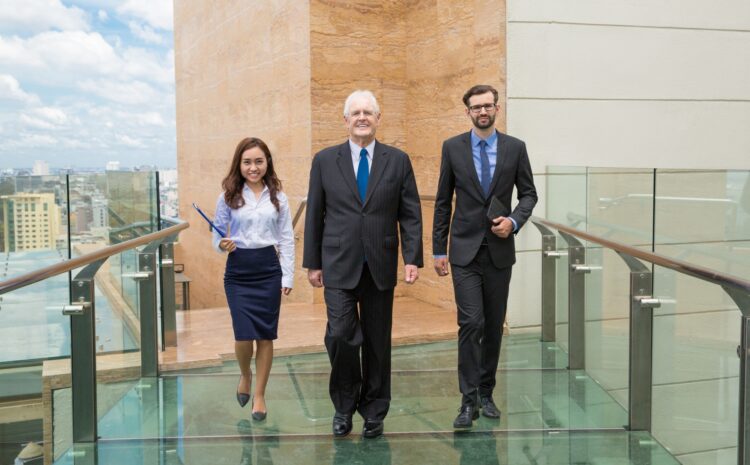
Political strategists mostly plan successful political campaigns. They devise plans to influence public opinion, win over people, and win elections. Candidates who combine conventional strategies with cutting-edge inventions are guaranteed to connect with their audiences. They are tasked with making political leaders likable and trustworthy. These strategies let campaigns adjust to shifting political environments while upholding their primary goals by fusing traditional techniques with innovative breakthroughs. Political consultants continue to drive successful campaigns, constantly improving their methods to maintain their lead in a continually changing field.
Below, we’ll discuss five main strategies consultants use to win elections.
1. Creating a Message That Captures Hearts and Minds
The campaign message is the lifeblood of any political campaign. It is the cornerstone of every speech, ad, and public engagement. Political consultants work tirelessly to create a message that speaks to the electorate’s needs and is consistent with the candidate’s ideals.
Understanding the Voters’ Pulse: Consultants conduct thorough research, including surveys, focus groups, and polls, to learn what people care about most. They investigate problems like healthcare, education, and economic policy to identify hot-button topics that appeal to the audience.
Personalizing the Candidate: A compelling message makes the candidate more relatable. Political advisors highlight a candidate’s background, accomplishments, and goals to make them relevant to the general public. Thanks to this individualized touch, voters are guaranteed to connect with the candidate, which promotes loyalty and trust.
For example, a campaign focusing on economic recovery would use a slogan like “Building a Stronger Tomorrow,” highlighting the importance of creating jobs and financial stability. These attention-grabbing mayor campaign slogans establish the tone for policy debates.
2. Political Consultants Mastering the Media Game
Media strategies are essential to contemporary campaigns, as channels like television, social media, and online ads drive voter involvement. As media maestros, political campaign planning optimizes exposure while preserving channel coherence.
Harnessing Social Media Power: Social media is now a powerful campaign tool. Candidates can interact with people directly, share updates, and dispel false information on social media sites like Facebook, Instagram, and Twitter. Using statistics to improve their strategy, consultants create captivating content for these platforms.
Crisis Management: Consultants serve as professionals in damage control during scandals or bad news. They refocus attention on the campaign’s advantages, make public remarks, and prepare candidates for interviews.
Storytelling Through Advertising: Top-notch TV commercials and videos communicate the campaign’s central message. Consultants ensure these media pieces have a lasting impact, whether telling a tale or a call to action.
For instance, a consultant might suggest combining social media posts demonstrating the candidate’s community involvement with video advertisements promoting the candidate’s accomplishments during a governor’s campaign.
3. Unlocking the Power of Data
Data is the most critical factor in the digital era and can affect the mayoral campaign slogans. Consultants rely on data-driven insights to create focused strategies that optimize impact and reduce waste.
Analyzing Voter Behavior: TConsultants employ sophisticated analytics to analyze voter demographics, historical election outcomes, and behavioral patterns. This enables them to pinpoint areas of strong support, swing voters, and essential voting blocs.
Precision Targeting: Consultants can customize messaging for various audience segments using data insights. For instance, while older voters might hear about healthcare and pension reforms, younger people would receive messaging centered on climate change.
Fundraising Strategies: Consultants also use data to maximize fundraising initiatives. Personalized outreach and identifying high-potential donors guarantee that campaigns have the funding to carry out their strategies.
A data-driven strategy increases the chances of success while saving time and money by ensuring that campaigns target the appropriate voters.

4. Engaging Voters Where It Matters Most
Voter involvement is the key to winning an election. Political consultants create plans to engage voters and make them feel respected and heard.
Grassroots Outreach: Voter involvement still depends on grassroots efforts like phone banking and door-to-door knocking. These initiatives promote voter turnout by creating a sense of concern and community.
Town Halls and Public Forums: Consultants plan events that allow candidates to speak with voters face-to-face. In these forums, candidates can address issues, outline their plans, and establish credibility.
Leveraging Digital Tools: Email campaigns and virtual town halls have become popular, particularly as ways to connect with tech-savvy voters. Consultants use these forums to encourage deep communication between candidates and voters.
Consultants ensure no voter feels left behind by fusing digital interaction with conventional outreach methods.
5. Adapting to a Changing Technological Landscape
New tools and technologies are constantly changing campaign management and political consulting. Those consultants that embrace innovation frequently outperform their rivals.
AI and Machine Learning: Using artificial intelligence, consultants can forecast voter behavior, evaluate enormous datasets, and improve campaign tactics.
Interactive Content: To make campaigns more interesting, consultants use tools such as surveys, infographics, and live Q&A sessions.
Ethical Considerations: Great power is accompanied by enormous responsibility. Consultants ensure their practices comply with ethical standards and are aware of data privacy risks.
Using this technology in campaign tactics increases effectiveness, expands outreach, and strengthens ties with voters.
Conclusion
Sound ideas and a well-thought-out plan developed by knowledgeable political strategists, especially when running for state legislature. These professionals create campaigns that enthrall and inspire voters by fusing their technology know-how, data insights, and inventiveness. Consultants try to succeed, from developing impactful messaging to controlling media and utilizing data.
The role of advisors will only increase as the political landscape changes. Because of their capacity to adjust to new trends and tackle novel obstacles, they remain essential allies for any candidate hoping to win over the hearts and votes of the electorate.
For more insights on political strategies, visit Jay Townsend.
